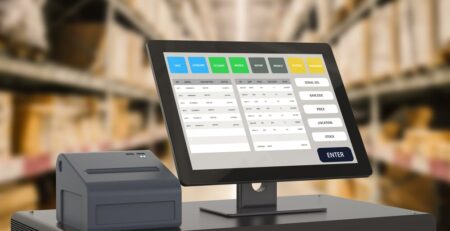5 Ways Dealership Management Systems Transformed the Automotive Industry
A dealer management system (DMS) is a software platform created specifically for the automotive industry, car dealerships, and large equipment manufacturers. A DMS is a crucial tool that helps businesses manage tasks, organize data, keep operations running smoothly, and more.
It’s hard to believe that it was only a few years ago, before the introduction of the DMS, that the auto industry relied on several different platforms that required separate logins and access points. With information across various platforms and the lack of communication between them, this method was time-consuming and often led to errors.
With the need to operate off of one dedicated software, a DMS was the solution to improve data management and workflow across the board. Essentially, a DMS pulls these different platforms, such as scheduling, inventory management, sales, and finances, into one hub.
Main DMS Features
There are many different types of DMS available today, some with a simple interface and others with a more robust set of features. A dealership management system can include many functionalities, depending on your business needs. While attributes can vary, some of the core components of a DMS include the following:
- Data management system for storing client information
- Client booking system or service, repairs, and sales appointments
- Parts & inventory management
- Accounting and finance
- Workflow automation, such as templates, notifications, calendars, and to-do lists
With the rapid changes in technology, how employees communicate with each other, and how consumer behavior has evolved, developers continue to improve dealership management systems to be more interactive and efficient.
It’s safe to say that the introduction of the dealership management system has been a game-changer in the industry. Here are just a few ways a DMS continues to transform the automotive industry and why, if you don’t already have one, you need this software!
1. Automation
The phrase “time is money” is especially true for the auto industry, where profit and time savings go hand in hand. Factors like efficient service, quicker approvals, and rapid communication can all lead to satisfied customers and more profit. Yet one of the most time-consuming tasks is data entry and information management, which, if left unchecked, can cause a lot of hiccups for a busy dealership.
A modern dealership management system incorporates automation in the process. What would typically take a few minutes to enter information can be completed in seconds with a click of a button. Furthermore, automation minimizes data entry errors and improves consistency across departments, ensuring that the information is accurate and up-to-date.
2. Data in One Place
The driving force behind the development of a dealership management system is that the automotive industry needed a solution where team members could access multiple daily functions in a single platform. A DMS does just that – data flows seamlessly from one department to another without needing to toggle between platforms and log into other software.
Behind the scenes, a DMS allows your business to stay competitive by having a more efficient workflow and better communication. With fewer errors and a more productive team, managers can strategize ways to bring in additional business.
3. Adaptive to Today’s Environment
Over the last decade alone, the automotive industry has seen rapid changes in consumer behavior and the impact of eCommerce. Not only do dealerships continue to compete with other brick-and-mortar dealerships today, but they are also up against online car sellers. With a higher level of competition, dealerships need to offer an impeccable customer service experience – from the second the customer walks through the door to when they leave with their vehicle.
When it comes to their vehicles, customers will pay extra for excellent customer service and communication – regardless of the advancements in eCommerce. Here’s how a DMS plays a role in adapting to today’s consumer environment and helping dealerships attract and retain customers:
- With accurate and consistent data, service is more personalized to each customer
- Service reps are able to view the communication history and offer services based on the customer’s preferences
- Faster communication means quicker service times, leading to more satisfied customers
4. Responsive and Simple to Use
A dealership management system is meant to make life easier for all departments in a busy dealership. With the user in mind, a DMS has just the right amount of features and tools without being so robust that it causes more confusion for the business.
In the process of switching to a new DMS or setting up a new dealership, make sure you test out the software to determine its user-friendliness and identify any limitations. Consider adding a Production Efficiency Platform plugin to your DMS if you are experiencing problems with your current system.
5. Accessible Through the Cloud
Most dealership management systems are cloud-based to allow for greater flexibility, convenience, and remote access to data. One of the biggest advantages of having a cloud-based DMS is that it eliminates the need for extensive IT and infrastructure support for security and backups, which cuts operational costs for dealerships. All data with a cloud-based DMS is backed-up and protected in the cloud.
Regardless of what dealership management system, automotive scheduling software, or service plugin you operate with, essentially, your dealership’s tech stack should save you time and enhance your workflow.
If you’re experiencing bottlenecks with your current DMS, take a look at Workflow 360°’s Production Efficiency Platform in action and how it can improve your processes.











